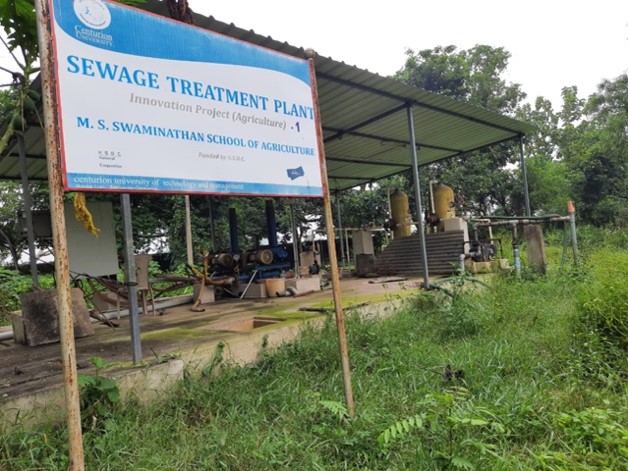Water Management at the University
Based on the information provided, Centurion University of Technology and Management (CUTM) actively upholds water quality standards and implements various initiatives to conserve water bodies, protect ecosystems, wildlife, and human health and welfare.
Water Quality Standards and Initiatives
CUTM complies with local and national regulations regarding water quality, following guidelines established by government acts such as the Water (Prevention and Control of Pollution) Act 1974 (https://cpcb.nic.in/upload/home/water-pollution/WaterAct-1974.pdf).
These standards cover microbiological contaminants, chemical contaminants, physical parameters, radiological contaminants, etc. The University ensures that its water sources, treatment processes, and distribution systems meet these standards to provide safe drinking water for its students, staff, and faculty.
To prevent water pollution and conserve water resources, CUTM organizes awareness programs in nearby villages (https://docs.google.com/document/d/18G4ngZeJibEZJ7cfiKFUkBa546-NxX3L/edit).
These programs emphasize responsible water management practices, including the cautious use of pesticides and fertilizers, proper disposal of pollutants
(https://docs.google.com/document/d/1pVZl1fUbUZmqmlJPLdS5rXhjpMXeYmXn/edit), and the removal of aquatic weeds (https://docs.google.com/document/d/1XiIsiUJc6uK33GitbNk4rJ6by3PKWodN/edit).
The university actively discourages the use of antibiotics and chemicals in fish culture ponds, promoting
organic alternatives and sustainable farming practices.
(https://docs.google.com/document/d/1n93mCbZQnJFuoecunQW6gNCPJY33v3uD/edit)
Preventing Marine Pollution and Land Contamination:
CUTM is committed to environmental safety and adheres to established legislations to prevent marine pollution. The University follows a comprehensive waste management policy (https://centurionuniv.edu.in/wp-content/uploads/AQAR/7/3.-Environmental-audit.pdf / https://centurionuniv.edu.in/wp-content/uploads/About/rules-and-policies/Green-Policy-.pdf), focusing on reduce, recycle and reuse. Food waste is recycled into organic manure, and agricultural runoff is disinfected to minimize water pollution. The University’s Sewage Treatment Plant (STP) processes wastewater, ensuring that land-generated wastes are not disposed of in water bodies. Chemical pesticides are avoided, and hazardous wastes are disposed of through expert agencies following government rules https://www.npcindia.gov.in/NPC/Files/delhiOFC/EM/Hazardous-waste-management-rules-2016.pdf.
Figure: Sewage Treatment Plant
Sustaining Ecosystems and Biodiversity:
CUTM’s School of Fisheries actively engages in initiatives to conserve biodiversity and sustain aquatic ecosystems. The university operates butterfly, bees, and cactus gardens to support local biodiversity, and it undertakes efforts to restore the ecological balance of Ramsagar reservoir. These initiatives involve fish ranching, managing invasive species, and collaborating with local communities to maintain fish-friendly pond conditions. The University’s commitment to community pond sustainability includes fish breeding programs, empowering local fish farmers and supporting economic opportunities through ornamental fish farming.
In conclusion, Centurion University of Technology and Management actively upholds water quality standards, implements various initiatives to prevent water pollution, conserves biodiversity, and collaborates with local communities to sustain aquatic ecosystems. Through these efforts, the University contributes significantly to the protection of ecosystems, wildlife, and human health and welfare.
